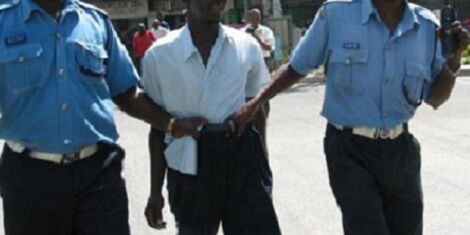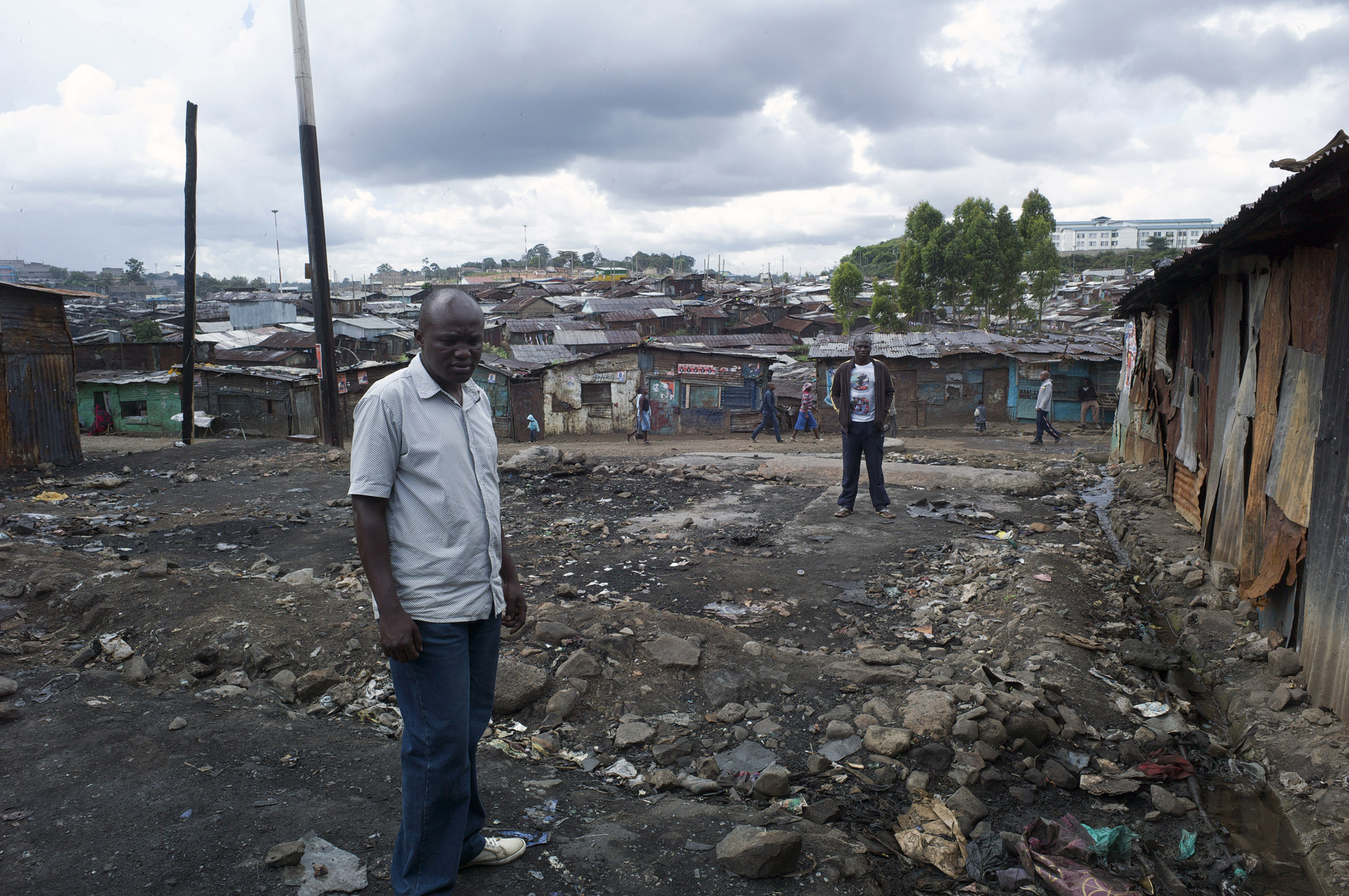
The story of the man below is one of trials, tribulations, and despair. He lived a life that seemed straight out of a movie
Kennedy Chindi has spent years in the trenches fighting against extrajudicial killings and police harassment in the slums since 2004.
Now age 45 and the father of six, Chindi slipped into the murky world of crime at the age of 13 — acquitted of a death sentence and barely escaping death by lynching.

Born to a military officer father who lost his job, Chindi and his family were compelled to move to Mathare where he grew up.
Chindi told a local media tabloid that ghetto life took its toll, plunging him into life on the streets and violent crime.
“When I was 13, we did numerous armed robbery escapades,” he informed a local media publisher while at the Mathare Social Justice Centre.
In 1989, his luck ran out. He was arrested, charged with violence and convicted.
“I remember it was Justice Roselyne Wendo who tried and convicted me, sentencing me to death in 1990.”

Chindi was sent to Kamiti Maximum Prison while his appeal ran its course. In 1997 he was acquitted.
But the life of crime still had its allure, its adrenaline rush, so he plunged back in, this time going for even more daring robberies and muggings.
“The very last one we did around March 2004 changed my life,” he said. He and two partners in crime ran into a trap, an ambush by members of the public.

“We got cornered by a mob who wanted to lynch us. My colleagues were not lucky,” Chindi said.
He said he fell unconscious and found himself at City Mortuary the following day.
“I woke up at the morgue with a tag number 1261 on my toe.
“After a few weeks at Kenyatta National Hospital, my life took a serious U-turn. I joined a community organisation in the slum.”
Reborn as activist

Chindi joined the Reality Tested Youth Programme in Kiamaiko Slums. There he would be gradually rehabilitated and engaged in youth empowerment. The experience introduced him to human rights defence.
“Our main work was to urge youth to shun crime and encourage police to employ alternative ways of combating, rather than arbitrary arrests and killings,” he said.
Chindi has won numerous awards for reaching out to youths steeped in crime and devising alternative projects for their livelihood.
“I was honoured by the Dutch ambassador as the best human rights defender of 2017,” he said.
He has also been recognised by the Law Society of Kenya among other organisations his work.
Chindi recognizes that crime exists in the slums but says there are better ways to combating it.

“It is true there is brutal crime in slums. But we need to ask ourselves if it’s sustainable to crush the young men rather than interrogate what drives them to it? he asked.
“Bullets, brutality and harassing people will never solve the problem of violent crimes, it will only harden young men.”
Crime ‘created by state’
Chindiworks with Mathare Social Justice Center as a field coordinator documenting police killings in the slums.

He says his organisation has linked a spike in crime to unemployment and hopelessness.
For example, he says, when NYS was unclogging drains and paving roads for weekly pay, there were no reported crimes in the larger Mathare slums.
“But the elites swindled the NYS project money and left the youth hopeless, driving into drugs and crime again,” he said. “Crime is actually a creation of the state.”
Chindi rejected claims that human rights defenders in the informal settlements are collaborating with or defending criminals.

He said they have numerous projects to rehabilitate youth.
“Because the community trusts us, we access youths who are hopeless and condemned to drugs and crime. We can engage them in rehabilitation programmes.
“Even those criminals are sons, daughters, cousins, nieces and are entitled to a dignified life and human rights,” Chindi emphasized.

His working in the slums has to come at a personal cost, he says. There was a direct threat to his life from police officers working the area, he says. He believes they are members of a killer squad targeting those accused of being criminals.
“I once had to flee upcountry to hide from Rashid [an alleged AP officer said to lead a death squad]. He had flashed my picture to a group of people in the area promising to have me buried,” he said.